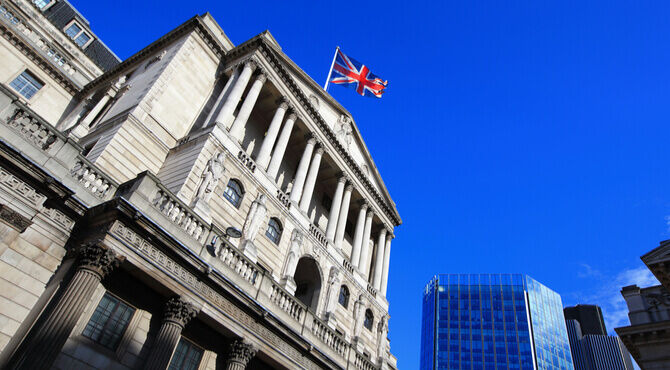Bank of England raises interest rates by 0.25%
The long-anticipated move returns the UK base rate to its pre-EU referendum level as inflation exceeds its target and unemployment is at an historic low.

Will the base rate rise further?
The MPC and the Bank of England are also not ruling out further base rate rises in future to return inflation to its 2% target after what is likely to be a peak above 3% in October. The London Financial Times reports this could be two further rises in the next two years.In response to what some commentators believe is a dovish return to pre-Brexit monetary policy, rather than a new era of more frequent rate rises, sterling’s value fell immediately on the announcement of the news after a week of gains.David Lamb, head of dealing at FEXCO Corporate Payments, commented the rise was “far too half-hearted” for the currency markets.“Mark Carney’s prolonged campaign of hints had built market expectations up to such an extent that anything less than a full-blown hawk-fest would be a disappointment and so it proved,” said Mr Lamb.“Despite voting for a rise, the Bank’s rate-setters remain deeply worried about the lingering threats to Britain's economy, and are willing to tolerate above target inflation for an extended period.“Taken together, these factors mean the Bank will be in no hurry to hike rates further. Mark Carney’s press conference talked of any future rises being ‘gradual and limited’, but the markets’ conclusion has been a more blunt ‘one and done’.“The net effect has been to deliver a beating for the pound, which is now losing the gains made as it soared on the pre-hike hype.”Read more enterprise news from Relocate Global:
- Services spur unexpected growth in UK GDP
- Employment outlook robust but pay will be hit – CIPD
- Services up but manufacturing hurts UK productivity
Impact of the rate rise on households
Fragile consumer confidence and fears around the level of personal debts are also weighing on the MPC’s considerations.Yet figures suggest the impact on households of the rate rise will be limited because a significant number of mortgage arrangements are on fixed-rate terms. This view is echoed by those in the property sector.Paul Smith, CEO of haart, one of the UK's largest independent estate agents, comments: “This rise was predicted and as such we don’t believe it will impact the housing market at all. When you consider interest rates have historically been several percentage points higher, this very small increment should not affect anyone who has borrowed sensibly. “With more stringent borrowing criteria in place we do not see very small increases in interest rates as being a significant impediment to the market. But this rise does show that rates could nudge up in future.”Impact of the interest rate rise on UK businesses
The view from business representative bodies was more mixed. Rain Newton-Smith, CBI Chief Economist, said while the rise was “no surprise”, the frequency of future rises will determine the impact on the wider economy.“Businesses will be watching the reaction of consumers closely and what’s important is the pace of any future rises,” said Ms Newton-Smith. “As rates creep up, it’ll be important to keep an eye on the impact for those at the lower end of the income scale.”However, Mike Cherry, Federation of Small Businesses (FSB) National Chairman, says: "Today’s rate rise will mean yet more cost pressures for small firms as they battle spiralling prices and flagging consumer demand.” He was also concerned about the impact of future rate rises. “An increase was inevitable at some stage so many businesses will have expected today’s rise,” he said. “But that’s not to say they can absorb more hikes in the short-term. This change must be allowed to properly bed in before further increases are considered."For related news and features, visit our Enterprise section. Look out for the launch of 2018's Relocate Awards, entries open in January. Relocate’s new Global Mobility Toolkit provides free information, practical advice and support for HR, global mobility managers and global teams operating overseas. Access hundreds of global services and suppliers in our Online Directory
Access hundreds of global services and suppliers in our Online Directory
©2024 Re:locate magazine, published by Profile Locations, Spray Hill, Hastings Road, Lamberhurst, Kent TN3 8JB. All rights reserved. This publication (or any part thereof) may not be reproduced in any form without the prior written permission of Profile Locations. Profile Locations accepts no liability for the accuracy of the contents or any opinions expressed herein.




























